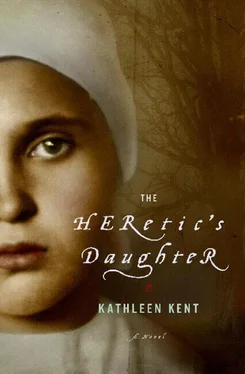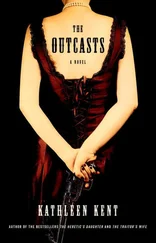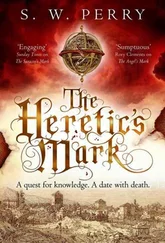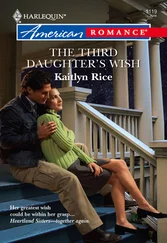WHEN FATHER RETURNED late that afternoon and found Richard and Andrew gone, the look on his face was truly terrible. He stood and stared at a point beyond our heads and I thought the stones of the hearth would crack or the dying embers of ash and oak beneath the flue would rekindle to a raging fire. He ran into the yard and paced about and pulled at his hair and tore his hat between his hands. I could hear his voice as he hatched aloud desperate plans to rescue them but in the end he returned to the house and sat at the table, his long arms dangling between his knees. Tom and I clung together as we had done atop Sunset Rock the night of the lightning storm, and waited for Father to find his way back to us from whatever blasted and empty place he had traveled to. Hannah, hungry and afraid, cried herself to sleep under the table, a piece of dried corn bread crumbled within her hand.
Finally, long after evening had filled the common room, his voice called to us out of the shadows and he brought us each to his side, his arms encircling us with his strength and raw-boned comfort. And for the first time in my life my father held me and let my tears mix with his. In the morning we would all rise from our beds to face the slanting light, our desperate hope partnering with us as we began the summer harvesting. Most of the field would be left to rot, as there were only three of us to cut and bind and shock the staffs of wheat. But we worked side by side up and down the dusty rows, our mouths cottony from the heat and growing despair, our arms sore and trembling from the endless swinging of the scythe, and our eyes dry from searching the northern horizon for the approaching relentless crawl of the prison cart.
CHAPTER EIGHT
July–August 1692
AUGUST IS THE month for mad dogs but it was in the last days of July that we saw the cur come trotting south down Boston Way Road. Tom and I had been left alone to work in the barn since early morning. Father had gone on the long walk to Salem, carrying in his sack scarcely enough food for one person. Food that must now be shared amongst three. He made the trip erratically every few days, fearing that the constable would be watching and would come and take the rest of us while he was away.
We had all cinched our waistbands ever tighter, and hunger was a song that played in our heads morning and night. The heat had dried the Shawshin to a little stream, starving Ballard’s Pond to a muddy pit and draining our well down to the smooth and mossy stones at the bottom. We had harvested whatever wheat we could, and while Tom worked from the loft to spread new straw for the animals, I thrashed and winnowed small piles of grain. The mice were the only living things in abundance in the barn, but the cow had given so little from her udder that I was loath to put out saucers of milk for the snakes. The cats, fearing the lurcher, had long since disappeared. As I watched the mice boldly eating the grain, I wondered how we could manage the back end of winter with no bread. It had been quiet in the loft for some time, the dust still settling from the last forkful of straw thrown down.
I called to Tom to stop idling and finish up his work but I got no answer. The heat had made me peckish and mean, and Hannah kept a safe distance from me, fearing more slaps than tickles. I could see her playing in the straw, pulling what was left of the yarn hair from my poppet. I had no reserves of strength left to bully her, so I called out to Tom again and saw his face appear above the ledge.
He threw down a jagged whisper, “Sarah, come up here. Right away.” His face was at all times a mask of concern, but there was something to the pitch of his voice, a fearfulness, that made my chest cave in on itself.
“Is it him? Is he coming?” I asked, feeling suddenly light headed and panicked. After all of the waiting it had come to this. That we should be taken without any ceremony or family left behind to give us a final farewell. I heard a low, wet snarling from the yard as the lurcher signaled an intruder, and while I climbed the ladder to the loft I wondered why he wasn’t giving his usual frantic barking. I stood next to Tom at the open loft, and when he pointed up the road, I saw the dog. He came towards us, drunkenly weaving his way from one side of the road to the other, his head matted with the froth around his mouth, his tongue hanging down from between his teeth, and panting feverishly as though he had been running a great distance. The lurcher pulled backwards against his chain and his growls turned to a whistling whine. The cur continued his staggering walk towards the lurcher until he came to a stop about twenty or thirty yards from the front of the barn. He lowered his head until it touched the ground, the drippings from his mouth staining the packed dirt to a black mud, and bared his teeth all at once.
There is a space of time before a mad animal charges, a space that may last a few heartbeats or a few minutes, as though the sickness thickens the brain as well as the blood and makes the course of thought sluggish and interrupted. I looked down to the open doors below the loft and knew that once past our lurcher the cur could charge the barn and savage Hannah before I could climb down the ladder.
“Tom,” I whispered, afraid to look away, “where is the flintlock?”
He pointed down below to the stalls, and when I looked I saw it propped against one of the beams. The lurcher, at the very end of his chain, had thrown himself belly down and was lying motionless, no longer whining, no longer twisting against his tether, his lip curled up over his fangs. I could hear Hannah talking and singing to herself and I took a chance and shushed her. The cur moved his head slowly towards us and stared through the open doors with bloody weeping eyes. He took a step and another and then stopped. A low grinding sound came from his throat and he sneezed mightily, spreading the foam from his dewlaps for yards around. Every moment that passed I feared to move lest I bring the dog charging into the barn, but with every breath that he did not move I cursed myself for not running to lift Hannah to safety. The dog took another few steps and I tensed to turn and make a grab for my sister.
Tom held my arm and said softly, “There isn’t time.” He took from his pocket a few small objects which clicked together as he palmed them. He drew his arm back smoothly and let loose a stone, which flew in a high arc, landing twenty feet behind the cur. He did it without hesitation and with the surety of a boy standing on a riverbed, hitting his target on the far shore. The dog startled and wheeled around towards the noise. Tom let fly another stone, which landed ten feet beyond the first. The cur growled and charged the dust kicked up by the stones and then stood wavering on unsteady legs, searching for his prey. Then something, perhaps the shadow of a passing bird or a foraging squirrel or a leaf rattling in the wind, led him stumbling down the road away from us. For the rest of that day as we bent and reached and sweated our way through barn and garden, I watched the slight, hunched figure of my brother and wondered at his coolness and presence of mind. After the cur had wandered away like a fever breaking on a summer flux, my trembling legs gave out, and it was Tom who helped me to my feet and guided me down the ladder. It was Tom who picked up Hannah and to her great confusion held her rocking to his chest. It was Tom who picked up the flintlock with steady hands and walked the forty or so yards down Boston Way in pursuit of the dog, taking careful aim and bringing it to its end with one shot to the head.
Late afternoon as we sat on the threshold of the back door waiting for Father’s tall form to appear from the simmering bracken of Falls Woods, Tom turned to me and said, “I’m not useless.”
Читать дальше












